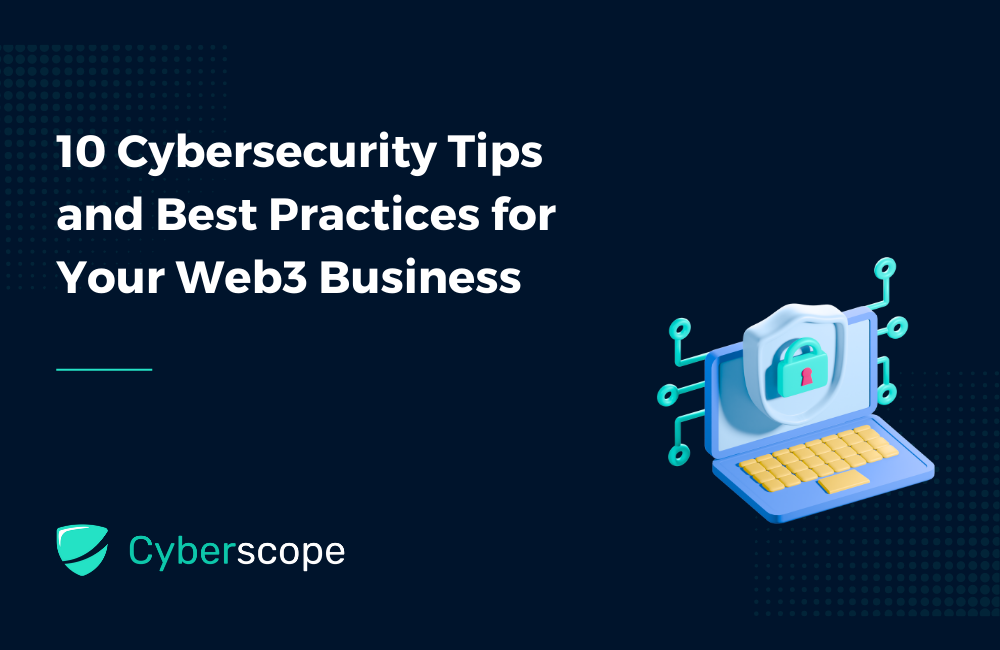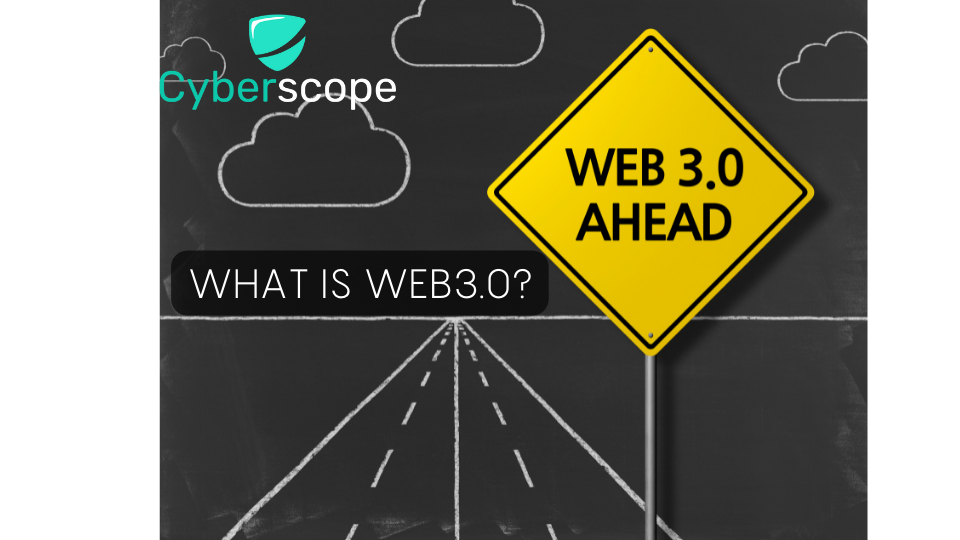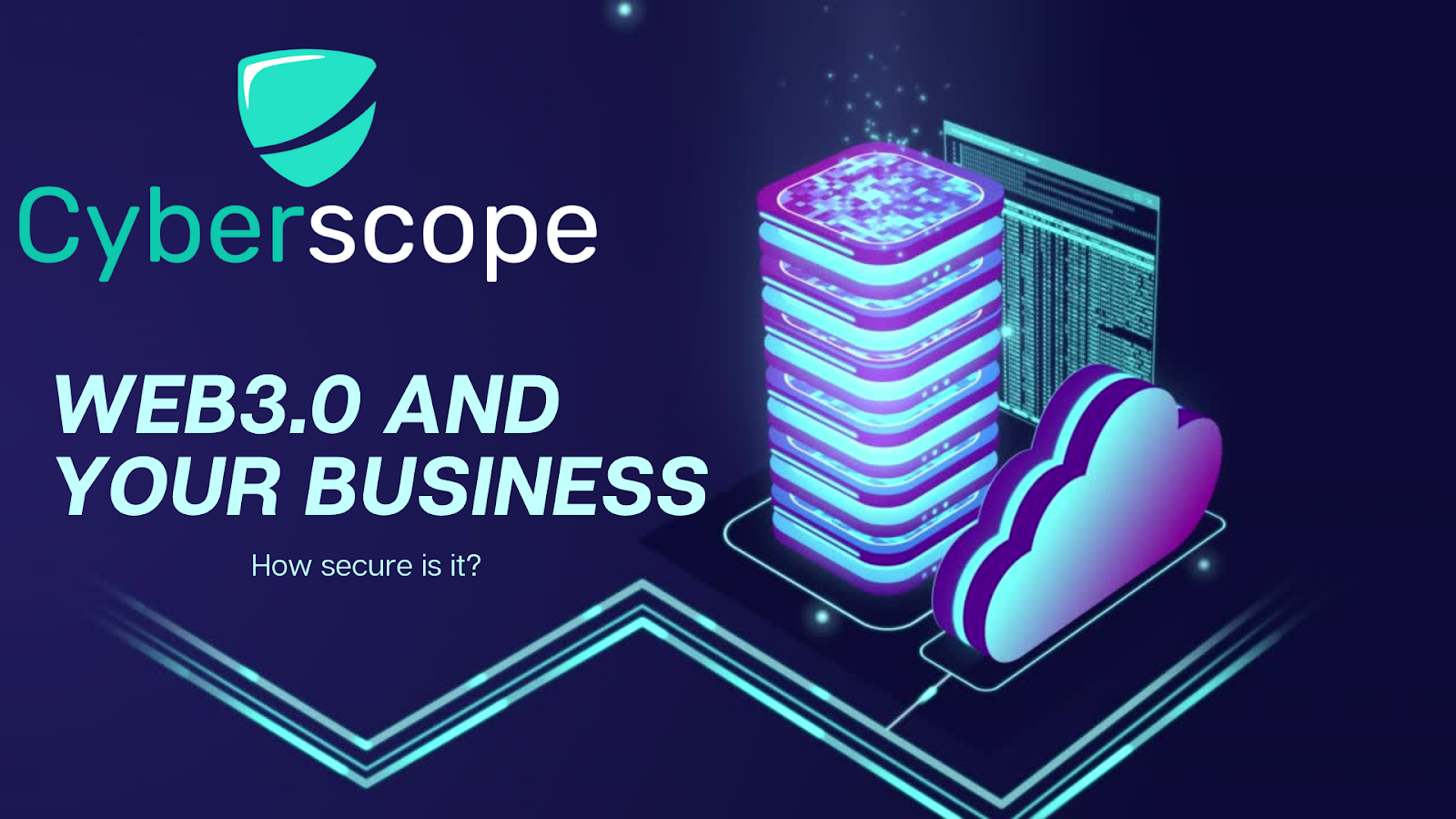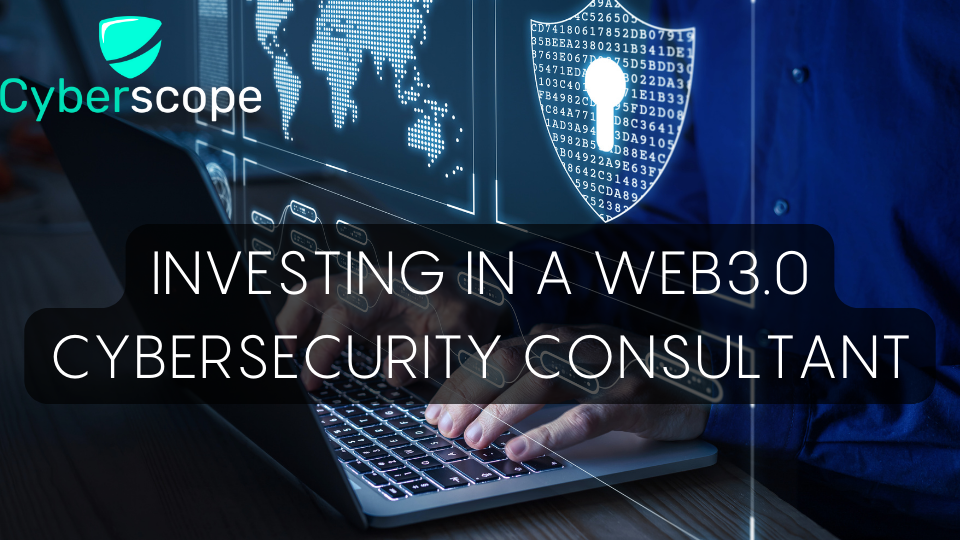

10 Cybersecurity Tips and Best Practices for Your Web3 Business

Introduction
For any business, the security of its assets and infrastructure is, and always should be its number one priority. With the introduction of Web3, cybersecurity is more crucial than ever for businesses that want to utilize it and succeed. In this article, we will go over 10 cybersecurity tips and practices that can help you keep your business safe while navigating the blockchain ecosystem.

What is Web3.0?
For us to better understand Web3.0, we need to take a look at the past. Web 1.0 and Web 2.0 are terms used to describe different eras in the history of the World Wide Web. Web 1.0 refers roughly to the period from 1991 to 2004, where most sites consisted of static pages, and most users were consumers, not producers, of content. Web 2.0 is based on the idea of “the web as platform” and centers on user-created content uploaded to forums, social media and networking services, blogs, and wikis, among other services. Web 2.0 is generally considered to have begun around 2004 and continues to the current day.
Web3 is the term used to describe a web with more decentralization and more possibilities, based on blockchain technology. This may mean that users can truly own their digital identities, personal data, and digital assets. The term was coined in 2014 by Ethereum co-founder Gavin Wood. In 2021, cryptocurrency enthusiasts, large technology companies, and venture capital firms started using the term “Web3” to describe how this new decentralized internet could potentially be set up. The most important aspect of Web3.0 is decentralization. Even though cryptocurrency is currently in the spotlight of the decentralization movement, it is a widespread belief that decentralization is the next step for the internet that will affect businesses across multiple (if not all) industries.

How secure is Web3.0?
Web3.0 is based on blockchain technology. While its biggest strength is that it is decentralized, it also has some vulnerabilities. Most of them are caused by smart contract weak points, which can affect data integrity if exploited in the right way. Businesses must ensure they take the appropriate steps to secure their systems as well as avoid their vulnerabilities.
Cybercrime is ranked as one of the biggest threats that businesses have to face nowadays. According to recent reports, there is a cyber-attack happening every 39 seconds. That being said, securing your business against cyber attacks is neither easy nor quick. It is however worth every second or penny spent towards that end. Cutting expenses is not something that you can afford to do when it comes to security. You should keep in mind that a secure infrastructure is the cornerstone of any successful business.
The 10 best cybersecurity tips to keep your business safe
The sooner you start getting your cyber security system(s) in place, the better it is. Starting further down the road, though viable, is not recommended. It can be difficult to apply changes to systems or educate a large number of people later on.
The target of a cyber attack is not always financial assets. If your business is processing and/or storing sensitive information, a potential hack could have catastrophic consequences. Your clients will lose faith in you plus breaching data protection and GDPR rules can result in big fines for your business.
Let’s examine the 10 best cybersecurity tips and practices that you can do to better safeguard your business:
Evaluate Your Cybersecurity Threat Profile
This is the first and simplest step when we’re talking about a business. What is your business’ category? If you fell victim to a hacker, what do you stand to lose, sensitive information or financial assets? That way, you can have a better understanding of what kind of measures you need to take to up your security.
Educate your employees
Employees are one of the most common weak points for hackers and cybercriminals to get access to your data. Latest reports show that 65% of cyber attackers have leveraged phishing attacks, like emails as their primary method.
To the untrained eye, phishing emails containing links can appear genuine, and it’s easy to get tricked. As a result, your personnel can fall into those traps, making cybersecurity awareness essential. It is important to ensure that your staff is familiar with current cyber assaults and how they are happening. That way you have a better chance of preventing human error.
Keep Software Up To Date
Another common vulnerability is outdated security or operating software. Computer software often gets security updates that patch the latest vulnerabilities. This makes it more difficult for attackers to take advantage of them. The same applies to security software like firewalls or antivirus programs.
You can automate this process by investing in an update management system. These keep track of all software and system upgrades, ensuring that your devices are always up-to-date.
Use A VPN
VPN stands for Virtual Private Network. VPNs are essential for businesses that don’t have the resources to invest in their internal network, or for team members working remotely. In the era of digital nomads, employees that work from home are more likely to have weaker cyber security than those working from their office.
With a VPN, each employee can easily turn it on whenever they access sensitive information, to hide their IPs. This way, they can help prevent breaches in the network of the business.
Use Strong Passwords And A Password Management Tool
This one might sound like a no-brainer, but a big majority of people still use weak or common passwords to this day. Using combinations such as a sequence of numbers, letters, first/last names, or birthdays should always be avoided. For a password to be considered a strong one, it needs to include letters (both capital and lowercase), numbers, and symbols. Sequences are always advised to be avoided as it makes it easier for hackers to guess the right combination.
Since there are many platforms or websites that an employee must have an account for, having a password manager is the way to go. It can safely and securely store your different credentials and thus eliminate human error.
Backup Your Data Regularly
Ransomware is one of the most common cyber attacks. They are still effective nowadays since most people and small businesses do not back up their data (either regularly or at all).
It can be prevented by either using a secure cloud service to back up your data or using a separate physical storage location. This can save you from having to pay hackers to get access to your data and gives you flexibility in case of faulty hardware.
Use Multi-factor Authentication For Logins And Approvals
The majority of websites and online platforms offer two or multi-factor authentication for both logins and approvals. By making use of them, even if your credentials get compromised, hackers cannot access your account. The same applies to making any changes/transactions since they will not have access to the authentication code.
The most widespread form of this is using authentication software like Google Authenticator or Authy.
Keep Track of Who Has Access to Your Systems
Having employees means giving them access to the system(s) that your business uses. This should always be monitored, as you don’t want to give access to the information you don’t want to be public. The same course of action applies not only to your employees but also to your clients.
Use a Firewall
Antivirus and firewall software are your best friends when it comes to online cybersecurity. This way your devices are both protected against any incoming suspicious traffic and secure from viruses.
Get Your Smart Contracts Audited
If your business makes use of smart contracts, you must invest in an audit. It can help with:
- finding any security holes or weak points within the code.
- potential improvements that can help streamline your business in a better and more efficient way.

Invest in a Web3.0 Cybersecurity Consultant
Hiring a Web3.0 cybersecurity consultant is essential to your success in navigating this space. Since Web3.0 can be very confusing, especially if you have no experience, relying on a cybersecurity consultant is the right way to go. An experienced company can help you secure your business by providing crucial insight and guiding you on the measures you need to take.
Conclusion
It can feel overwhelming trying to find out how to secure your organization against cybercriminals and attacks. There is a lot of information available online and it can be hard to identify the right things to do, as sometimes you can see contradicting info. However, by reading this article you can better understand which aspects you should focus on and research. Having a smart contract as part of your business can help you automate many complicated and/or time-consuming tasks. That being said, consulting firms like Cyberscope can help you increase your security and make Web3.0 safer for you and your business.
Recent Posts


What is a Fallback Attack in Smart Contracts?
4 months ago
How Secure are Solana Smart Contracts?
6 months ago
